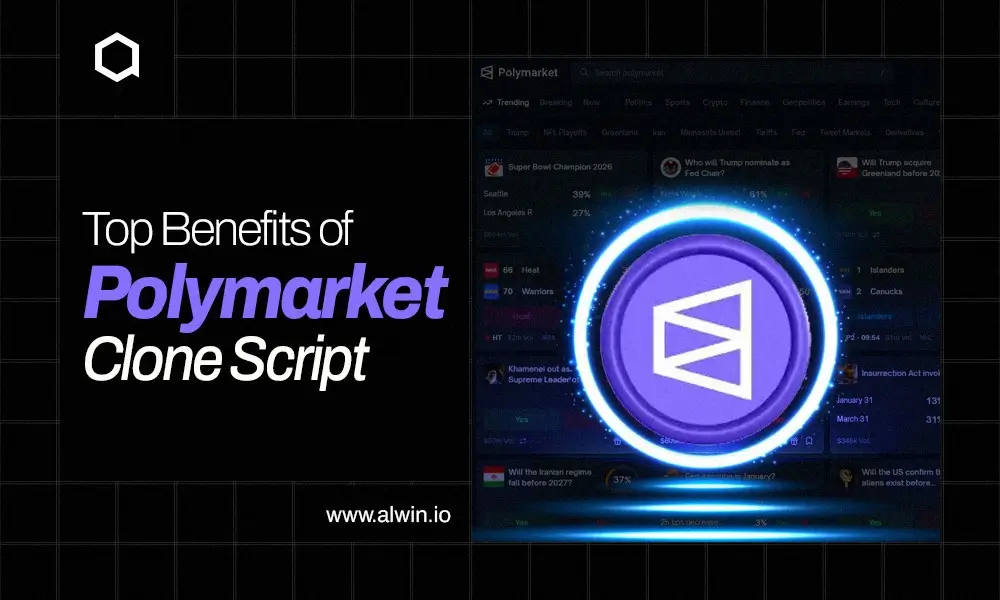Are you looking to develop a Bitbot-like trading bot? This guide is your go-to resource for mastering Bitbot cloning effortlessly as it covers all the essentials. From grasping fundamental concepts to implementing advanced strategies, you'll gain valuable insights into Bitbot development. Join us as we break down the complexities and empower you to create innovative bots with ease!
Understanding Bitbot and Its Features
Bitbot
Bitbot refers to a sophisticated software tool designed to automate cryptocurrency trading processes. Its primary purpose is to assist traders in executing trades swiftly and efficiently in the volatile cryptocurrency markets. Unlike manual trading, Bitbot operates based on predefined algorithms and strategies, enabling users to capitalize on market opportunities without constant supervision.
Key Features of Bitbot for Effective Cryptocurrency Trading
Automated Trading Capabilities: Bitbot streamlines trading by automating buy and sell orders according to predefined parameters. This feature allows traders to execute trades swiftly, taking advantage of market movements even when they're unable to monitor the markets actively.
Portfolio Management Tools: Bitbot provides comprehensive portfolio management tools, allowing users to monitor their cryptocurrency holdings in real time. Traders can track their investment performance, analyze portfolio diversification, and make informed decisions to optimize their holdings.
Technical Analysis and Trading Signals: Bitbot incorporates advanced technical analysis tools to identify market trends and trading opportunities. It generates trading signals based on various indicators such as moving averages, RSI, MACD, etc., empowering traders to make data-driven decisions.
Risk Management Features: Bitbot offers robust risk management features to help traders mitigate potential losses. Users can set stop-loss orders, trailing stops, and position-sizing rules to protect their investments and minimize downside risks.
Benefits of Using Bitbot for Traders
Increased Efficiency: Bitbot automates repetitive trading tasks, allowing traders to execute trades faster and more efficiently. This efficiency frees up time for traders to focus on strategy development and market analysis.
Minimized Emotions: By removing emotions from the trading equation, Bitbot helps traders avoid impulsive decisions driven by fear or greed. This leads to more disciplined and rational trading practices, ultimately improving overall performance.
24/7 Market Monitoring: With Bitbot, traders can monitor cryptocurrency markets round-the-clock, even during non-trading hours. This constant vigilance enables them to capitalize on market opportunities and react promptly to price fluctuations.
Enhanced Accuracy: Bitbot leverages advanced algorithms and technical analysis tools to execute trades with precision and accuracy. As a result, traders can expect more consistent and reliable outcomes compared to manual trading methods.
Diversification: Bitbot allows traders to diversify their trading strategies by implementing multiple trading algorithms simultaneously. This diversification helps spread risk across different assets and trading strategies, potentially increasing overall returns while reducing volatility.
Planning Your Bitbot Clone Development
Identifying the Target Audience and Their Needs
Before beginning Bitbot clone development, it's crucial to identify the target audience and understand their needs. This audience includes individual traders, institutional investors, or cryptocurrency enthusiasts seeking automated trading solutions. We can gather insights into their preferences, pain points, and desired features through market research and user feedback.
Setting Clear Objectives for the Bitbot Clone Development Project
Establishing clear objectives is pivotal for Bitbot clone development. Objectives may include enhancing trading efficiency, improving portfolio management, increasing profitability, or targeting specific market segments. Well-defined objectives help align development efforts, prioritize features, and measure project success.
Researching Existing Bitbot Solutions and Conducting Competitor Analysis
Thorough research into existing Bitbot solutions and competitor analysis is essential for understanding the market landscape and identifying opportunities for differentiation. By analyzing features, pricing models, user feedback, and competitors' market presence, developers can pinpoint gaps in the market and areas where the Bitbot clone can offer unique value propositions.
Choosing the Right Development Approach
When planning Bitbot clone development, deciding between custom development and white-label solutions is crucial. Custom development offers flexibility and customization but may involve higher costs and longer timelines. White-label solutions provide a quicker time-to-market and may be more cost-effective initially but may lack flexibility. The choice depends on budget, timeline, scalability requirements, and desired customization level.
Technical Aspects of Bitbot Clone Development
Selecting Programming Languages and Frameworks
Choosing the right programming languages and frameworks is crucial. Popular languages include Python, JavaScript, and Java, while frameworks like Node.js, Django, and Spring Boot offer robust development environments. Consider scalability, performance, and community support.
Designing the Architecture
Architect for scalability, reliability, and performance. Adopt a microservices architecture for easier maintenance and scalability. Implement asynchronous communication patterns like event-driven architecture for enhanced responsiveness.
Integrating APIs for Exchange Access
Integrate APIs for accessing cryptocurrency exchanges and market data. Exchanges such as Binance, Coinbase, and Kraken provide APIs for real-time data retrieval and order placement. Use RESTful APIs or WebSocket protocols for interaction.
Implementing Trading Algorithms
Core to Bitbot clone development is implementing trading algorithms. Utilize techniques like trend following, mean reversion, and arbitrage. Leverage technical indicators, price patterns, and machine learning models for analysis. Ensure adaptability to different market conditions.
Testing and Quality Assurance
Testing and quality assurance are crucial for reliability and stability. Conduct comprehensive unit testing, integration testing, and end-to-end testing. Perform stress testing and performance testing to evaluate scalability. Implement continuous integration and deployment (CI/CD) pipelines for automation and rapid iteration.
User Interface and Experience Design
Importance of a User-Friendly Interface for Bitbot Clone
A user-friendly interface is crucial for Bitbot clone success. It ensures traders can navigate effortlessly and execute trades efficiently, boosting satisfaction, reducing learning curves, and fostering trust, leading to higher engagement and retention.
Design Considerations for Dashboard, Charts, and Trading Tools
Dashboard: Provide an intuitive, organized overview of portfolios, including metrics and transactions. Allow customization for user preferences.
Charts: Offer interactive, visually appealing charts for market trend analysis. Allow users to customize settings for tailored strategies and provide real-time updates.
Trading Tools: Ensure easy access to tools like order placement and stop-loss functionality. Provide clear instructions and optional advanced features for streamlined trading.
Implementing Responsive Design for Mobile and Desktop Users
Adapt to varying screen sizes and resolutions for consistent user experience across devices. Optimize layouts, controls, and screen space usage for desktop, tablet, and mobile accessibility.
Incorporating Customization Options for Users
Empower users with customization options for dashboard layouts, chart settings, themes, and notifications. Tailoring the platform to individual preferences enhances satisfaction and engagement.
Security Measures for Bitbot Clone
Understanding Security Risks in Cryptocurrency Trading Bots
Cryptocurrency trading bots are exposed to various security risks, including:
- Unauthorized access to trading accounts
- Theft of cryptocurrency funds
- Manipulation of trading algorithms
- Exposure of sensitive user data
- Vulnerabilities in third-party APIs
Recognizing these risks is crucial for implementing effective security measures and protecting user assets.
Implementing Encryption Protocols for Data Protection
To safeguard sensitive user data and communication channels, encryption protocols like SSL/TLS should be employed. This ensures that data exchanged between the Bitbot clone and external servers, including cryptocurrency exchanges and APIs, remains encrypted and inaccessible to malicious entities.
Secure API Integration Practices
Secure API integration involves:
- Using API keys with appropriate access controls and permissions
- Employing OAuth or similar authentication mechanisms
- Validating input data to prevent injection attacks
- Implementing rate limiting to prevent abuse and mitigate denial-of-service attacks
- Adhering to these practices helps mitigate the risk of unauthorized access and data breaches.
Regular Security Audits and Updates
Regular security audits and updates are imperative to identify and address vulnerabilities within the Bitbot clone's codebase and infrastructure. This includes:
- Conducting penetration testing to identify weaknesses
- Performing code reviews to ensure adherence to secure coding practices
- Keeping software dependencies and libraries up to date to address known security vulnerabilities
- Monitoring for suspicious activity and implementing intrusion detection systems
Compliance and Regulation
Regulatory Requirements
Cryptocurrency trading bots must comply with various regulations based on jurisdiction. This includes licensing, registration, and adherence to anti-money laundering (AML) and know-your-customer (KYC) rules. Compliance with securities and financial services regulations is also crucial, especially if the bot offers investment advisory services or facilitates trading in security tokens.
AML and KYC Compliance
To prevent illicit activities like money laundering, terrorist financing, and fraud, bot operators must ensure strict AML and KYC compliance. This involves robust identity verification procedures, thorough customer due diligence checks, monitoring transactions for suspicious activity, and reporting any such activity to relevant authorities.
Legal Considerations
Operating a Bitbot clone in different jurisdictions necessitates understanding local laws, regulations, and licensing requirements. Each jurisdiction may have its own regulatory framework governing cryptocurrency trading, securities trading, and financial services. Staying informed about regulatory developments and ensuring compliance with local laws and regulations is essential to mitigate legal and regulatory risks.
Launching and Marketing Your Bitbot Clone
Preparing for Launch
Ensure completion of all development tasks and rigorous testing for functionality and security. Prepare marketing materials like website content, press releases, and social media posts. Establish post-launch customer support channels and documentation.
Reaching Your Audience
Utilize a multi-channel marketing approach, including social media platforms (Twitter, Reddit, LinkedIn), targeted online advertising (Google Ads, Facebook Ads), and collaboration with influencers and thought leaders in the cryptocurrency space.
Building Partnerships
Forge partnerships with cryptocurrency exchanges and trading platforms to expand your Bitbot clone's reach. Collaborate to integrate your bot into their platforms or offer special promotions. Strategic partnerships enhance credibility and widen the user base.
Providing Ongoing Support
Maintain user satisfaction and retention by offering continuous support through email, live chat, and a comprehensive knowledge base. Monitor user feedback, iterate based on suggestions and market trends, and regularly release updates and features to stay competitive.
Conclusion
Now equipped with the knowledge to master Bitbot cloning, it's time to put your skills into action! Remember, practice makes perfect. Keep experimenting, refining, and innovating your bots. Stay updated with the latest trends and technologies in bot development. Whether you're creating bots for fun, learning, or business, the possibilities are endless. So go ahead, build your Bitbot empire, and let your creativity soar!



